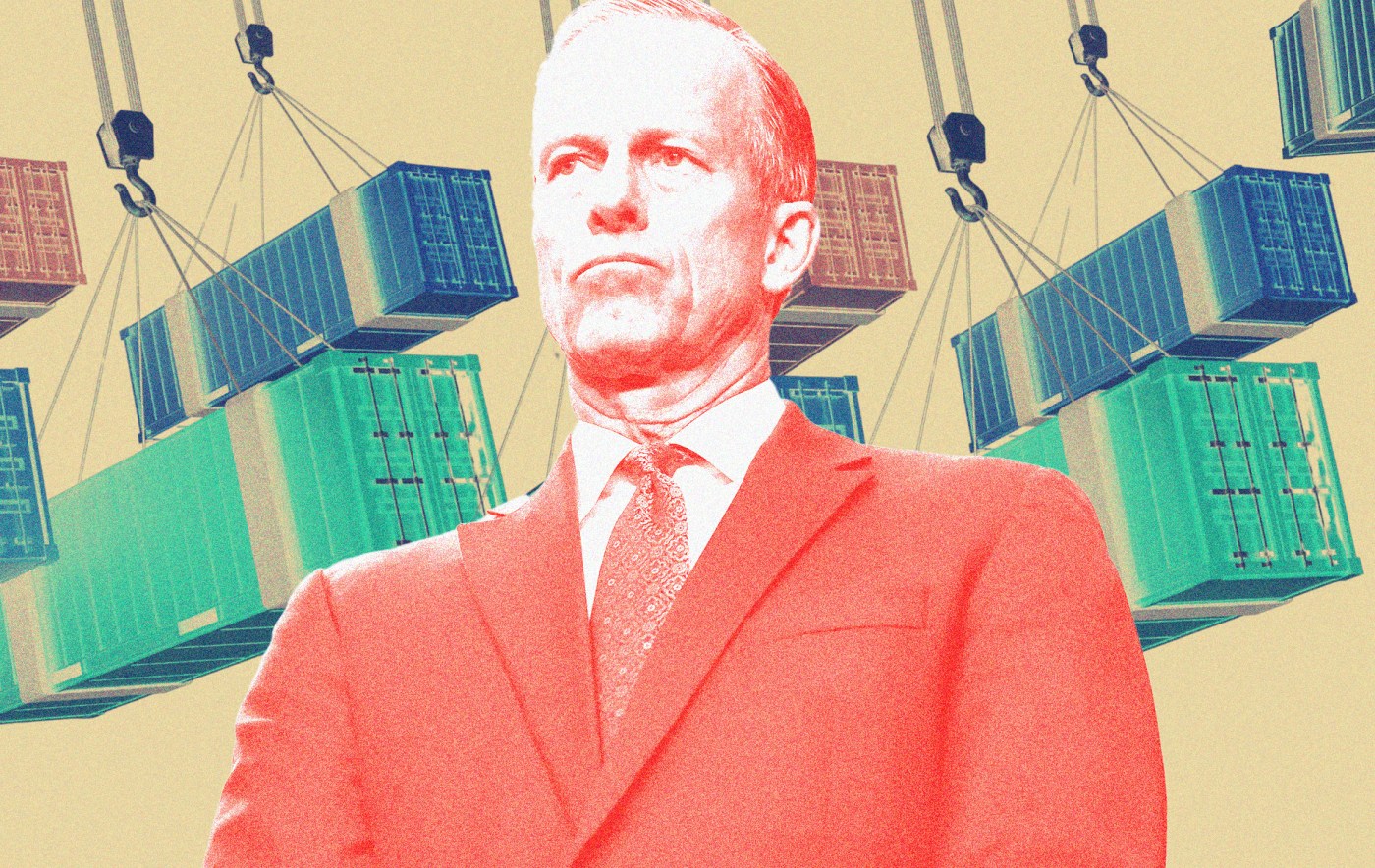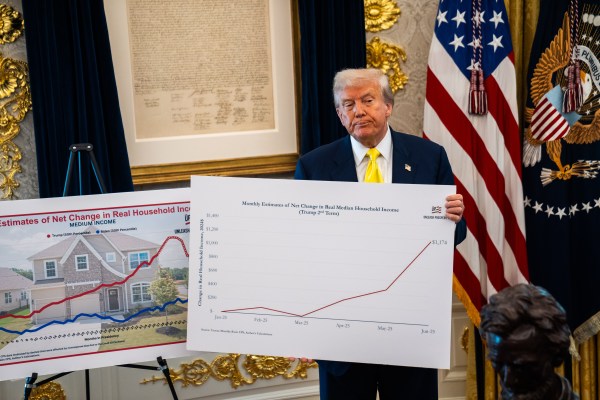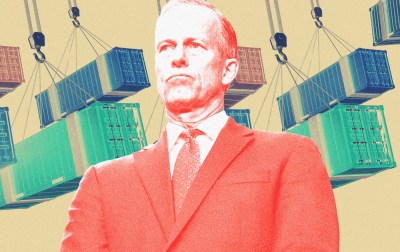President Donald Trump touts tariffs as a fiscal elixir for all he claims ails the American economy, dismissing foreign trade as unnecessary and in some instances, unwanted. White House messaging to anxious Republicans in Congress has been the exact opposite—echoing Treasury Secretary Scott Bessent’s reassurance that trade is vital and tariffs are temporary.
Indeed, with Trump agreeing to the framework of an agreement with the United Kingdom and a momentary easing of tensions with China amid ongoing negotiations with Beijing, it would seem Bessent is the more reliable public messenger of administration trade policy. And that might explain, at least partially, why congressional Republicans worried about economic fallout from higher tariffs have so far kept their concerns private, even as damaging disputes with key trading partners in Asia and Europe persist.
“The message from the White House to the caucus has been: Deals are coming—this is to get deals, we’re getting deals,” a senior Republican Senate aide told The Dispatch. “This is not an effort to end all global trade or anything like that.” This aide added: “Members give a lot of leeway because they truly believe the administration is working for deals, and we’ve seen some evidence of them.”
Some resistance to Trump’s trade agenda exists among congressional Republicans; particularly in the Senate.
There, GOP leaders have given members latitude to criticize the president if that works to assuage the worries of constituents, as Sen. Susan Collins, a Maine Republican up for reelection in 2026, did during a recent floor speech. “The tariffs on Canada would be detrimental to many Maine families,” she said. Added Sen. Mitch McConnell of Kentucky: “Tariffs are bad policy, and trade wars with our partners hurt working people most.” The former longtime Senate GOP leader posted those comments to X on April 3, following Trump’s so-called “Liberation Day” announcement of higher global tariffs on imported goods and commodities.
But messaging guidance from the chamber’s Republican leadership has otherwise echoed the White House, with one additional recommendation: Praise Trump for slapping higher tariffs on China (now partially paused) and explain why playing hardball with Beijing is warranted. Limited evidence of this approach can be found in posts to the Senate Republicans X account.
The timeline is maintained by Sen. Tom Cotton of Arkansas, who as Republican conference chairman—No. 3 ranking in GOP leadership—is responsible for his party’s messaging strategy in the Senate. For instance, posting about potential trade deals, both on the Senate GOP X account and by individual Republican senators, has been light since early April. But there have been plenty of posts, from Republican leadership and rank-and-file senators, criticizing China for malign trade practices and praising Trump for doing something about it.
“China’s been ripping us off for decades,” Sen. Eric Schmitt of Missouri said in one such X post circulated in early May by the Senate GOP feed. “They steal our IP, flood our markets with cheap goods, and wipe out American jobs. They export 5x more to us than we send to them. President Trump is fighting to put our people and our interests first.”
In the House of Representatives, messaging guidance from GOP leadership, primarily Speaker Mike Johnson and Majority Leader Steve Scalise, both of Louisiana, has been similar. Trump’s tariffs, they have told rank and file members who have expressed concern, are not about reducing foreign trade but about leveling the playing field for American business and workers. However, the politics of the president’s trade agenda in the House are much different than they are in the Senate.
Rank-and-file House Republicans are more willing to give the president time to deliver trade deals (a dynamic that could change in the midterm election year if agreements fail to materialize and the economy is reeling.) But this seeming wealth of patience is less about House Republicans’ faith in Trump versus being almost completely distracted by the challenge of passing a reconciliation package of tax reductions and spending cuts that comprise the heart of the president’s fiscal agenda, GOP sources tell The Dispatch.
“They are so busy with the reconciliation agenda that there isn’t much room for anything else right now,” Jeff Burton, a Republican lobbyist and former GOP House aide, said. “I don’t see House Republicans, in particular, having much push back on tariffs anytime soon.”
Financial markets rallied this week around news the United States and China have temporarily deescalated their trade tet-a-tet. The framework of a deal agreed to with the United Kingdom no doubt contributed to the rosier investment outlook. But the American economy is not out of the woods. Tariffs on imports outside of those two countries—from Asia, Canada and Europe, for example—are inflationary and hurting businesses and consumers, who want Trump to focus on reducing costs.
In other words, there are still reasons House Republicans might yet get antsy and push back against Trump’s trade agenda. The question, strategically, is how to do it effectively with unhappy voters who might punish them in the 2026 midterm elections yet without openly criticizing Trump, whose wrath congressional Republicans might fear more than their constituents.
“One of the challenges that our members face is, their constituents are focused on inflation and getting inflation solved,” GOP pollster David Winston, who advises congressional Republicans, said. “What you are likely to hear from most of the elected representatives who are particularly in competitive situations is what actions and steps they are taking to deal with inflation.”







Please note that we at The Dispatch hold ourselves, our work, and our commenters to a higher standard than other places on the internet. We welcome comments that foster genuine debate or discussion—including comments critical of us or our work—but responses that include ad hominem attacks on fellow Dispatch members or are intended to stoke fear and anger may be moderated.
With your membership, you only have the ability to comment on The Morning Dispatch articles. Consider upgrading to join the conversation everywhere.